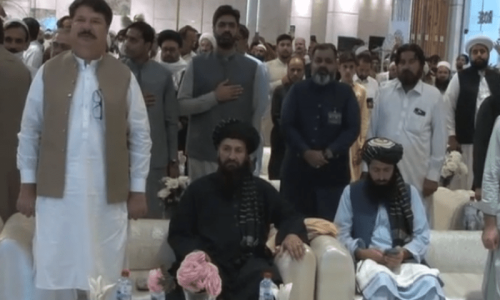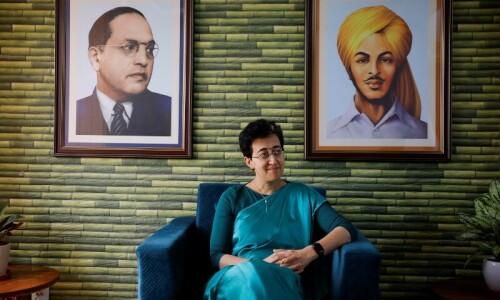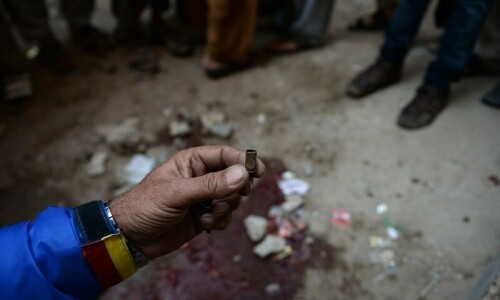LONDON: Privacy International’s fated struggle to stop the Google spy car stalking the UK’s streets has reminded me of my own brush with the country’s photography police recently. I was being photographed in the Covent Garden area of central London and the photographer was having a hard time trying to make me look into the middle distance and mellow my scowl. For people born without the Kate Moss gene it’s always a difficult situation, but I was giving it my best shot.
As I followed the photographer’s instructions and tried to come up with a smile that would get people running to the nearest shop to buy my book, a security guard on patrol around the piazza walked up and stood between the photographer and me. The guard was quite a determined professional; he put one hand in front of the camera lens and muttered darkly into his walkie-talkie.
I have always had a soft spot for security guards in London as most of them are either part-time PhD students or very poor people given the job of looking after our safety and expected to do it with the help of a cheap uniform and an identification badge. But this was an open, public place, commonly full of tourists taking each other’s pictures. The security guard, however, had his orders.
Why would a potential terrorist (or people exhibiting suspect behaviour, as the London’s Metropolitan police (aka the Met) likes to describe them in its anti-terror publicity) pose in front of an organic cosmetics stall and religiously follow the instructions of a white, female professional photographer who looked nothing if not an infidel? The photographer tried to test the resolve of the security guard by stepping out of the covered area and making me pose in front of a column. But the guard followed and covered the lens again; he looked like a man with a mission to save London from desperate debut writers and their collaborators in the photographic professions.
In the ensuing hour in the same part of the city we were chased away from Nehru’s bust outside the Indian High Commission, and Citibank. Even the folks at Australia House descended on us after we had set up the tripod, I had perfected my writerly pose and we were only waiting for the clouds to part.
The photographer, very bitter by now, told me that the police treat anyone with professional photography equipment as a suspect. According to the professional group Editorial Photographer UK, if you want to take pictures in central London you have to apply for a permit at Charing Cross police station. The approval can take up to 28 days. Then, as a part of Photo Safety Identity Checking Observation you are required to wear “a thin fluorescent waistcoat” kitted with radio frequency identification (RFID) tag. The Met has assured the photographers that RFID is a cheap and “passive device that needs no batteries”.
A spokesperson for the Met told the photographers’ group earlier this year that “cameras are potentially more dangerous than guns”.
You’d think that the Google-mobile would meet the police’s criterion of suspect behaviour. Plying the streets in its bid to make a photographic map of London, it looks like an amateur’s attempt at turning his personal car into a Bond-mobile. And we know that Google doesn’t do amateur any more.
Our photography session finally took place outside a little church on the Strand where an old attendant greeted us with mild curiosity. He held the door open so that we could get the lighting right, and even offered to rearrange the pulpit if we wanted to take pictures inside. —Dawn/ The Guardian News Service














































Dear visitor, the comments section is undergoing an overhaul and will return soon.